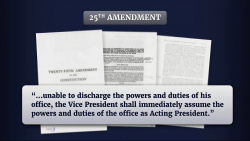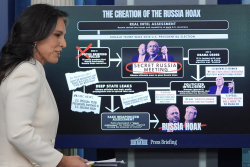In June, the US military struck Iran’s main nuclear sites using a variety of precision weapons and cutting-edge aircraft.
The US military’s Operation Midnight Hammer in Iran has set back the regime’s nuclear program by two years. While a verified assessment of the damage inflicted on Tehran’s primary three underground nuclear-related facilities has been challenging to ascertain, the Pentagon has confirmed the “bunker busting” bombs dropped by the US Air Force have caused significant degradation of its atomic program. “We have degraded their program by one to two years, at least intel assessments inside the Department [of Defense] assess that,” Defense Department spokesman Sean Parnell told reporters. “We believe that Iran’s nuclear capability has been severely degraded, perhaps even their ambition to build a bomb,” he added. Although the administration would like to believe Operation Midnight Hammer could result in the end of Tehran’s nuclear ambitions, it is unlikely the regime can actually be dissuaded from advancing its development of a nuclear weapon down the line.
Operation Midnight Hammer
In June, the US military struck Iran’s three main nuclear sites across the country using a variety of precision weapons and cutting-edge aircraft. Two dozen Tomahawk cruise missiles and 14 30,000-pound bunker-busting bombs were launched by B-2 “Spirit” stealth bombers, aerial refueling aircraft, a guided missile submarine, and a contingent of fighter jets, including the F/A-18 Super Hornet, F-22 Raptor, and F-35 Lightning II. While Israel had already been striking Tehran as exchanges in violence between the two nations picked up earlier last month, Israel does not possess the equipment required to penetrate heavily fortified facilities. The United States’ participation in the strikes culminated in the damage inflicted on Iran’s Fordow, Natanz, and Isfahan nuclear sites.
Did Iran Have a Nuclear Weapon?
The Islamic Republic of Iran has a long history of violating international treaties and operating secret nuclear weapons research. Just a couple of weeks prior to Operation Midnight Hammer, the International Atomic Energy Agency issued a draft detailing how the regime has failed to cooperate fully with UN inspectors since at least 2019. From removing cameras in its nuclear facilities to stockpiling more highly enriched uranium than authorized, Iran has remained non-compliant with its nuclear obligations. While there is no evidence that Iran possesses an actual nuclear weapon, the state certainly had enough highly enriched uranium and other nuclear materials in order to create multiple nuclear weapons in a matter of months. Iran entering its nuclear breakout stage is of grave concern to its adversaries, especially considering the regime’s rogue behavior in the region over the last few years.
In May, President Donald Trump said, “I want to make a deal with Iran, I want to do something if it’s possible, but for that to happen, it must stop sponsoring terror, halt its bloody proxy wars, and permanently and verifiably cease its pursuit of nuclear weapons.” Only time will tell whether or not the current administration will move forward on any kind of deal with Tehran.
About the author: Maya Carlin
Maya Carlin, a Senior Editor for 19FortyFive, is an analyst with the Center for Security Policy and a former Anna Sobol Levy Fellow at IDC Herzliya in Israel. She has by-lines in many publications, including The National Interest, Jerusalem Post, and Times of Israel. You can follow her on Twitter: @MayaCarlin.
Image: DVIDS.

















